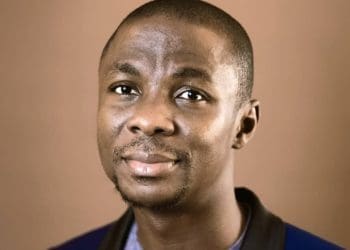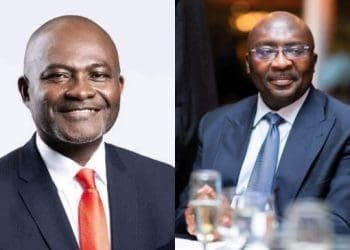Road accidents kill far more people than nuclear power plant incidents, yet nuclear energy is feared more. Discover why roads are deadlier and what drives risk perception.
Africa is where I was born, and I am proud to be an African. I will never fault the Creator—God Almighty—for placing me on African soil, for this continent is richly endowed with both natural resources and vibrant, active human capital. We are blessed with abundant minerals such as uranium, gold, bauxite, manganese, diamonds, lithium, and vast oil and gas reserves. Beyond these, we have timber, cocoa, and enormous water resources.
Many young Africans would not wish to leave such a richly blessed continent if these resources were efficiently harnessed for the benefit of all. Despite the bad leadership witnessed across the continent, Africa remains our home. I dare say that if I had the opportunity to relocate from Ghana, I would first consider an East African nation or South Africa before choosing any advanced country in the world.
However, despite my love for Africa, I would not want to live on a continent described not only as the “Dark Continent” because of the colour of its people, but also because over 600 million Africans still lack access to electricity. Ironically, in some parts of Africa, consumers pay exorbitant tariffs yet receive only about four hours of electricity supply daily.
From the south to the north, and from the east to the west, millions struggle to access electricity. Those who even have access to electricity endure frequent power outages. Africans often travel to Europe, Asia, the United States of America, and the Middle East for conferences where cutting-edge energy technologies are discussed. Unfortunately, after spending thousands of taxpayers’ money on travel, accommodation, and conference fees, we return home and fail to implement the valuable ideas we were exposed to. In other cases, African governments lack the will and power to take long-term strategic bold initiatives, due primarily to short-term political campaign targets to woo electorates.
Nuclear power technology has existed for over seven decades. The first nuclear power plant to generate electricity for a power grid was inaugurated in Obninsk, Russia, in 1954.
Since then, many countries in Europe, Asia, and North America have invested heavily in nuclear energy to ensure energy security and industrialisation.
According to the World Nuclear Association (WNA), there are currently 440 nuclear power reactors operating across 31 countries, with 70 reactors under construction around the world.
Sadly, in Africa, only South Africa operates a nuclear power plant—the Koeberg Nuclear Power Station. It is thus refreshing to see Egypt take bold steps to construct four large reactors which are progressing steadily. More of such bold projects are needed if Africa is to add value to its vast raw materials, industrialise, and grow the economy to provide hope for the teeming youth on the continent.
What caused the delay? Few Africans have allowed themselves to be influenced by anti-nuclear environmental groups who demonize the same technology their home countries depend on for power and prosperity.
These groups often cite the two major nuclear accidents—Chernobyl (1986) in Ukraine and Fukushima Daiichi (2011) in Japan. It is important to state that the Chernobyl incident was not caused by the nuclear plant itself, but rather by human negligence, lack of safety culture, and a faulty reactor design which would never be licensed today.
Regarding the Fukushima incident, it is a fact that it was caused by a tsunami generated by a massive earthquake, resulting in the displacement of hundreds of people. Since these two incidents, nuclear scientists and the IAEA have invested massively in research and safety innovations to make nuclear power safer and more environmentally friendly.
Modern reactors—the Gen III and Gen III+ reactors—that are currently under construction and operation have incorporated passive safety systems to mitigate risks, making them safer.
Similarly, Small Modular Reactors (SMRs) come with several inherent safety systems that operate without human intervention or external power.
These reactors are designed to withstand extreme natural events without releasing harmful radiation. With their compact size and reduced fuel inventory, SMRs minimise potential impact even further.
Nuclear energy offers one of the lowest greenhouse gas emissions across its lifecycle—thanks to its high efficiency and zero-carbon operation. Despite lingering fears, nuclear incidents remain extremely rare today, largely due to modern safety protocols, technological advancements, and stringent regulatory regimes.
In 2023 and 2024, I had the rare opportunity to join other African journalists to tour Russia’s Leningrad Nuclear Power Plant in St. Petersburg and the world’s first Floating Nuclear Power Plant, the Akademik Lomonosov, located in Pevek, the northernmost part of Russia. Facilitated by the Russian State Atomic Energy Corporation (ROSATOM), the tour exposed us to the rigorous safety culture underpinning both land-based and floating nuclear facilities.
Since the Fukushima incident in 2011, there has not been any major nuclear accident—thanks to enhanced reactor designs and strict operational protocols. Africans, therefore, should not fear when their governments consider nuclear energy. Instead, we should be more concerned about the rampant road accidents claiming thousands of lives annually—silently robbing the continent of its human capital.
Let’s consider these worrying statistics on road accidents that occurred in 2024 in six African nations.
The chart above illustrates the number of persons injured and killed in road accidents across six African countries in 2024, based on data from national road safety agencies and police services. Egypt recorded the highest number of road accident injuries, with 76,362 people injured, far exceeding the other countries in the comparison. It also had a relatively high fatality figure of 5,260 deaths.
Nigeria followed with 31,154 injuries and 5,421 deaths, reflecting a significant road safety challenge in Africa’s most populous nation.
Uganda recorded 20,664 injuries and 5,144 deaths, suggesting a high casualty rate relative to its number of injuries.
Zambia and Ghana reported moderate figures, with 15,921 injuries and 2,199 deaths for Zambia, and 11,408 injuries and 2,494 deaths for Ghana.
Kenya had the lowest number of injuries (9,094) but a comparatively higher fatality rate (4,748 deaths), indicating more severe accidents on average.
These alarming figures demonstrate that road accidents remain far deadlier than the potential risks associated with nuclear power generation, a highly regulated and safety-conscious industry.
Nuclear technology today is safer than ever before. It provides clean, reliable, and stable baseload power—a critical foundation for Africa’s industrialisation and economic growth.
The recent lifting of the World Bank’s ban on nuclear power financing should encourage African nations—especially Ghana, Uganda, Rwanda, Niger, Tunisia, Morocco, Kenya, Guinea, Algeria, Tanzania, and Senegal—to pursue their nuclear ambitions boldly.
As Egypt’s El Dabaa Nuclear Power Plant makes steady progress, South Africa has reaffirmed its commitment to nuclear energy in its Integrated Resource Plan (IRP) and plans to add 5,200 MW to its nuclear generation capacity.
During the 2025 African Energy Week (AEW) in Cape Town, Eskom’s Chief Nuclear Officer at the Koeberg Nuclear Power Station, Velaphi Ntuli, stated that Koeberg Unit 1 had already received a 20-year operational license extension and was awaiting approval for Unit 2’s license extension for an additional 20 years.
Investors consistently prioritise countries that demonstrate political stability and energy security. Africa has become one of the world’s most attractive investment destinations, and sustaining that confidence requires substantial investment in energy infrastructure—particularly nuclear power—to ensure reliable energy supply for both citizens and industry.
The writer is the executive director for Energy News Africa Ltd. He is pursuing an MSC Energy Economic student at the Ghana Institute of Management and Public Administration, GIMPA.#
By MICHAEL CREG AFFUL
Email: crergafful2016@gmail.com












